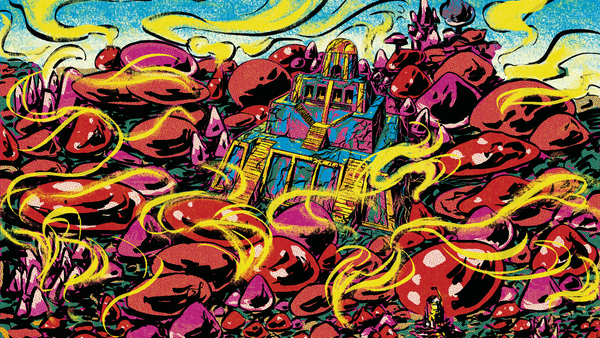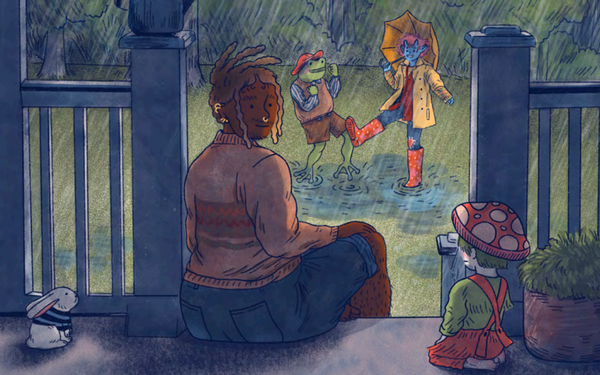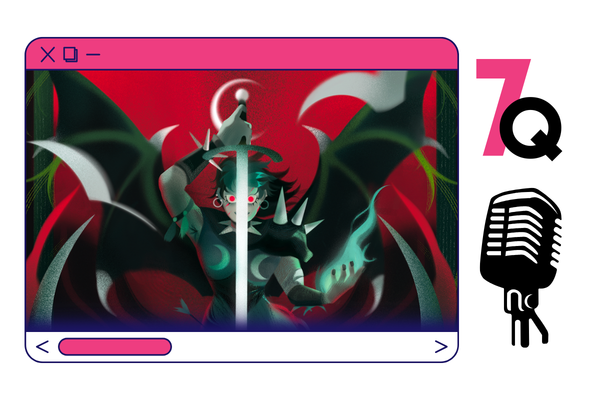Crunch's Catan Activations
A sheep on the board, but a wolf on the court.

Episode 25 of the Rascal Radio Hour is a board game bonanza as Chase and Thomas are joined by BoardGameWire's Mike Didymus-True to discuss a news week heavily skewed towards the meeple side of the tabletop industry. The crew talks about Spiel Essen, the largest trade show-convention hybrid in the world, and some of the most interesting games Mike saw while in Germany. They also discuss the state of content creators and criticism as it pertains to board games but manage to wrap back around to a conversation on actual play's future.
Later, the trio dig into two different troubling crowdfunding stories: Altered TCG's publishers profess a mea culpa after telling backers their massively successful campaign may not be enough to secure the game's future; and Steamforged's deluxe version of Terra Mystica fails to garner enough, er... steam at launch, so they're dramatically whacking down the price. What can we extrapolate from these case studies? And how much is Chase just grinding his ol' battleax?
Finally we answer your questions about old trading card games that should come back from the dead, along with a long tangent into Catan's weird recent licensing. What does a basketball team, Netflix, and the phrase "interactive concourse activations" have in common? Why, it's everyone's favorite board game about sheep, wood, and walls.
You can find Rascal Radio Hour on Apple, Spotify, and all the other various podcatchers. Leaving a five-star review helps new listeners find our show and website. Since we eschew traditional advertising, these reviews and any word-of-mouth are genuinely a massive help — thank you!
Here's an excerpt:
Mike: [Altered TCG] needs €2.5 million to do this expansion, but that will come from the crowdfunding campaign in pot one and pot two, which is retailers on a completely separate system. We don't know how much money is in the retailer pot. What spurred their decision to do this is that the retail pot currently is quite low. And so they were trying to create a little bit of like, look, come on guys, if we want this to kick on you need to up your game on the Gamefound side. If the number rises there, maybe more retailers will look at it and go, well there's a lot of desire for this game and therefore the number will go up in that pot, too.
Unfortunately, I wonder whether it's the case of when you live within the bit of the industry that you're in, you just know a lot of things about how it works and you don't necessarily feel like you need to explain that to people who are backing the campaign. I do wonder whether part of this is just a lot of assumptions have been made about how much knowledge people have of what they're talking about. It just needed to be a lot clearer. If you're going to bother doing this, I think you need to say what the reasons are behind it. Otherwise, again, people will just fill the vacuum with their own thoughts, right? A lot of the thoughts going around are, well, this game's failing and the GameFound campaign is not going to fund. I don't know if that's necessarily true. It sounds like they have a lot of confidence that they will get retailers in. This was just an effort to to bump the numbers up a bit. But it's been a bit of a disaster, honestly.
Thomas: That's really interesting because it is clear from your article that there is some amount of money that was going to come from retailers. But they say, if we don't raise two and a half million, the adventure will come to an end and we'll have to refund you. And if they think like that would go down well with people, yeah, that's a very clear misunderstanding. This is such an unspoken secret among publishers that it's hard to understand that the whole system is predicated on backers being impulsive, you can't really fathom how they work so you need the number low. You treat it like a social force. And then you say something like this, and then it becomes a bunch of individuals going, hey, wait a minute, you lied to me. That's how they interpret this, and suddenly there's a complete mismatch.
Chase: I have a lot of sympathy for Equinox up to the point where I can understand that doing a crowdfunding campaign of this size does mean that they work within a system. And Régis Bonnessée — and I'm sorry for absolutely butchering the French pronunciation — but he has said in comments that GameFound told them to go low. We were following their directive, their advice.
Thomas: I think that's a little bit of, hey, I'm just a little guy. Like it's not true, right? You don't really get to be like, somebody told me to do this. No, no, no, you run the company. And that's fine. They just need to own the fact that this is how the industry works. If they want to say that, this is how the industry works.
Mike: Right, exactly, and that's the problem, isn't it? You can frame this in a completely different way: Maybe it's just a case of having to make a relatively quick decision because the campaign is live, and we've got to get this going now. I think it's very easy to be accidentally overly cynical about this sort of thing. Equinox are probably coming at this from the point of view as a company of like 30 people, but we really like making this game, and we really know people like playing it. And so how do we make it happen? How do we make this thing that we are trying to raise money for?





